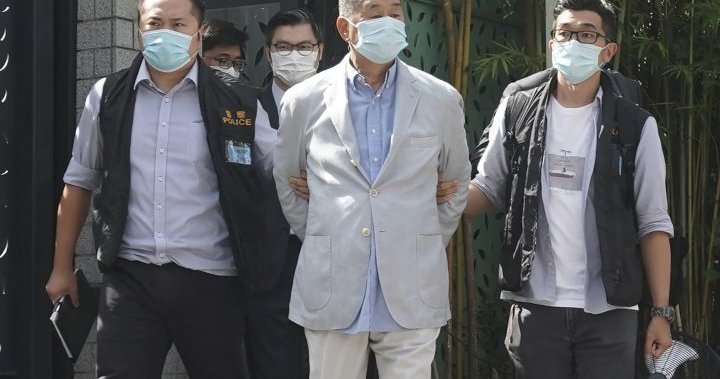
Jimmy Lai: What to know as Hong Kong media tycoon’s trial gets underway
Global News
A landmark national security trial started Monday in Hong Kong for prominent activist and publisher Jimmy Lai, who faces a possible life sentence if convicted.
A landmark national security trial opened Monday in Hong Kong for prominent activist and publisher Jimmy Lai, who faces a possible life sentence if convicted under a law imposed by Beijing to crush dissidents.
Lai, 76, was arrested in August 2020 during a crackdown on the city’s pro-democracy movement under the sweeping national security law enacted following huge protests four years ago. He was charged with colluding with foreign forces to endanger national security and conspiring with others to put out seditious publications.
The closely watched case tied to the now-shuttered pro-democracy newspaper Apple Daily that Lai founded is widely seen as a trial of press freedom and a test for judicial independence in the Asian financial hub.
China promised that the former British colony could retain its Western-style civil liberties for 50 years after returning to Chinese rule in 1997. But in recent years, the Hong Kong government has severely limited free speech and assembly and virtually eliminated political opposition under the rubric of maintaining national security. Many leading activists were arrested, silenced or forced into self-exile.
Lai’s trial is Hong Kong’s first on charges of collusion with foreign forces. It also targets three companies related to Apple Daily.
Lai smiled and waved at his supporters after he walked into the courtroom. Some members of the public waved at Lai to show their support. Hong Kong’s Roman Catholic Cardinal Joseph Zen, a vocal democracy advocate in the city, and representatives from foreign consulates were among the attendees.
Before opening statements, Lai’s lawyer Robert Pang, facing the prosecution in court, said the sedition charge his client faced didn’t follow proper legal procedures.
Pang argued the law required the prosecution of sedition charges to begin within six months after an alleged offence was committed and that prosecutors failed to do that in Lai’s case.





















 Run 3 Space | Play Space Running Game
Run 3 Space | Play Space Running Game Traffic Jam 3D | Online Racing Game
Traffic Jam 3D | Online Racing Game Duck Hunt | Play Old Classic Game
Duck Hunt | Play Old Classic Game











